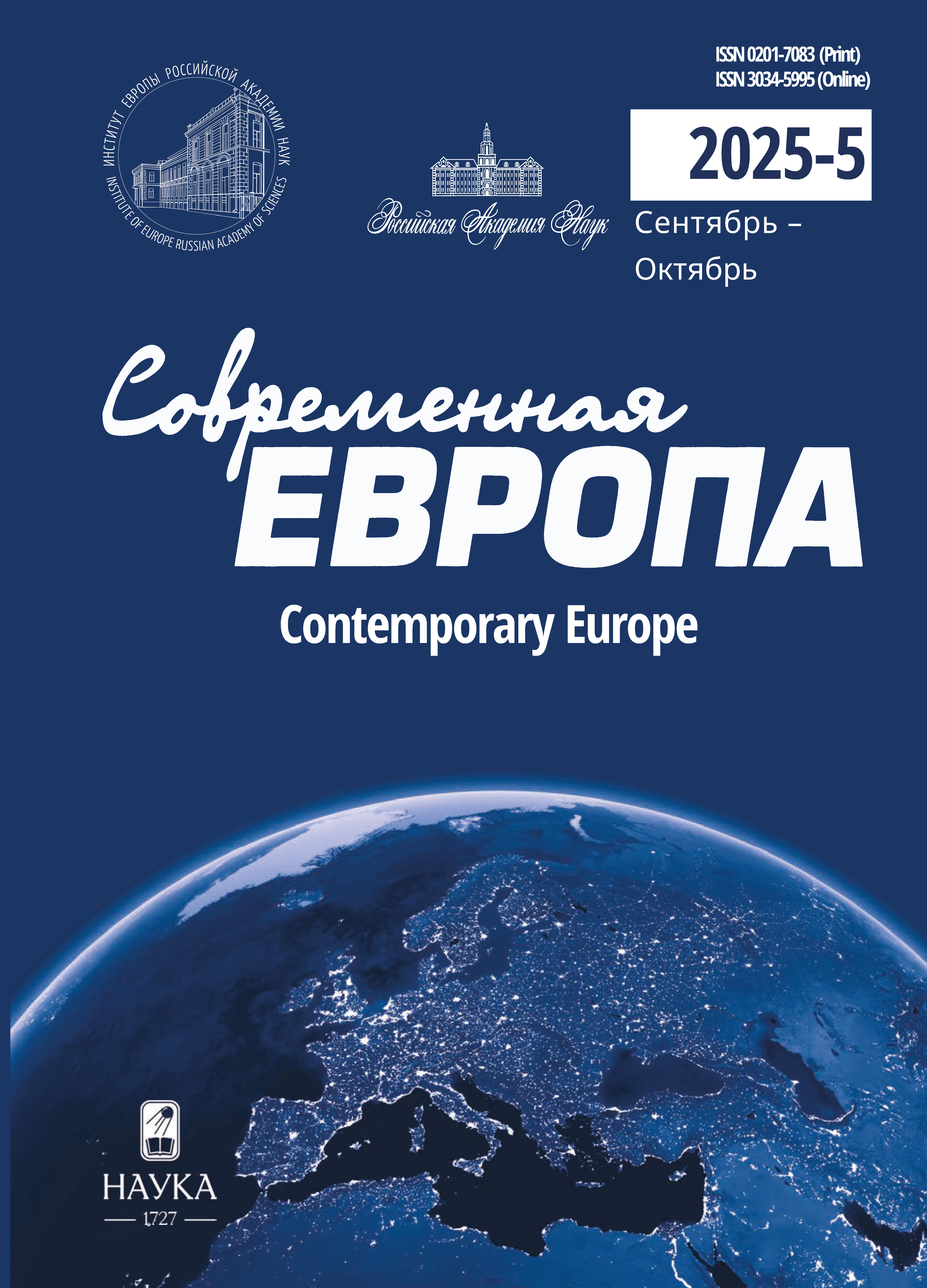Some aspects of food security in the countries of Central and South-Eastern Europe
- Authors: Drynochkin A.V.1,2
-
Affiliations:
- Moscow State University of International Relations (MGIMO University)
- Institute of Europe Russian Academy of Sciences
- Issue: No 1 (115) (2023)
- Pages: 88-99
- Section: Articles
- URL: https://rjsvd.com/0201-7083/article/view/652275
- DOI: https://doi.org/10.31857/S0201708323010072
- EDN: https://elibrary.ru/OSEEEC
- ID: 652275
Cite item
Abstract
Among the complex of issues dealt with by the theory of food security, the problems of the impact on food inflation, which especially grew in the Visegráld countries and Albania in the 2nd-3rd quarter of 2022, are being studied. The focus of the paper is on researching the possibilities of increasing the product supply due to imports. The countries selected for the study demonstrated a common strategy to use the problems with the export sales of grain experienced by Russia and Ukraine in 2022 in the interests of developing their own infrastructure and increasing the security of national grain markets, as well as to strengthen the ruling political forces. However, due to multiple differences between the countries (the level of self-sufficiency in grain crops, the degree of geographical proximity to Ukraine, the availability of financial resources, etc.), they chose different tactical models: the Visegrad countries and Romania, despite the rhetoric of solidarity with countries with a high level of food insecurity, are aimed at obtaining additional financial dividends from their role as transit countries for Ukrainian grain; Albania, due to its geographical remoteness from Ukraine, the closure of Ukrainian ports before the start of a grain deal and small financial reserves, is forced to focus on other available sources of grain.
Keywords
About the authors
Alexey Viktorovich Drynochkin
Moscow State University of International Relations (MGIMO University);Institute of Europe Russian Academy of Sciences
Email: drinda-hu@yandex.ru
Moscow, Russia;Moscow, Russia
References
- Босич С. (2020) Аграрная политика Сербии в контексте обеспечения продовольственной безопасности. Дис.. канд. экон. наук. Москва. 216 с.
- Дрыночкин А.В. (2014) Экономика Албании. МГИМО, Москва. 76 с.
- Елагина А.С., Гендель С.Ю. (2021) Индекс глобальной продовольственной безопасности: регионы мира. Экономика: вчера, сегодня, завтра. Т. 11. № 11В. С. 478-489. doi: 10.34670/AR.2021.89.56.006
- Лукиан В. (2022) Стратегические подходы преодоления сдерживающих факторов экономического развития АПК: на примере Румынии. Столыпинский вестник. Т. 4. № 9. С. 5526-5554. URL: https://cyberleninka.ru/article/n/strategicheskie-podhody-preodoleniya-sderzhivayuschih-faktorov-ekonomicheskogo-razvitiya-apk-na-primere-rumynii (дата обращения: 20.09.2022)
- Назаров Д.М., Кондратенко И.С., Сулимин В.В., Шведов В.В. (2022) Цифровизация сельского хозяйства на примере Румынии. Международный сельскохозяйственный журнал. Т. 65. № 6(390). С. 622-624. doi: 10.55186/25876740_2022_65_6_622
- Папцов А.Г., Шеламова Н.А. (2018) Глобальная продовольственная безопасность в условиях климатических изменений. Российская академия наук, Москва. 132 с.
- Ревенко Л., Пантелеева О., Исаченко Т. (2019) Вопросы обеспечения продовольственной безопасности в Европе. Современная Европа. № 2. С. 129-141 DOI: http://dx.doi.org/10.15211/soveurope22019129141
- Саморукова А.Н. (1997) Румыния: аграрная реформа и продовольственная безопасность. Проблемы теории и практики управления. № 1. С. 30-34.
- Awulachew M.T. (2020) The Role of Wheat in Human Nutrition and its Medicinal Value. Global Academic Journal of Medical Sciences. Vol. 2. Issue 6 (Nov-Dec). P. 50-54. URL: https://www.gajrc.com/journal/gajms/home
- Ben Hassen T., El Bilali H. (2022) Impacts of the Russia-Ukraine War on Global Food Security: Towards More Sustainable and Resilient Food Systems? Foods. No. 11(15). DOI: https://doi.org/10.3390/foods11152301
- Caprile A. (2022) Russia's war on Ukraine: Impact on food security and EU response. Member's Research Service. 11.04. URL: https://epthinktank.eu/2022/04/11/russias-war-on-ukraine-impact-on-food-security-and-eu-response/(accessed: 20.09.2022)
- Dudek H., Myszkowska-Ryciak J. (2022) Food Insecurity in Central-Eastern Europe: Does Gender Matter? Sustainability. No. 14. DOI: https://doi.org/10.3390/su14095435
- Guerrero B.J.E. (2010) Politics, Globalization, and Food Crisis Discourse. Economics Discussion Paper. No. 2010-22. DOI: http://dx.doi.org/10.2139/ssrn.1726779
- Krasznai Kovács E., Bachórz A., Bunzl N., Mincyte D., Parasecoli F., Piras S., Varga M. (2022) The War in Ukraine and Food Security in Eastern Europe. Gastronomica. Vol. 22. Issue 3. P. 1-7. DOI: https://doi.org/10.1525/gfc.2022.22.3.1
Supplementary files











